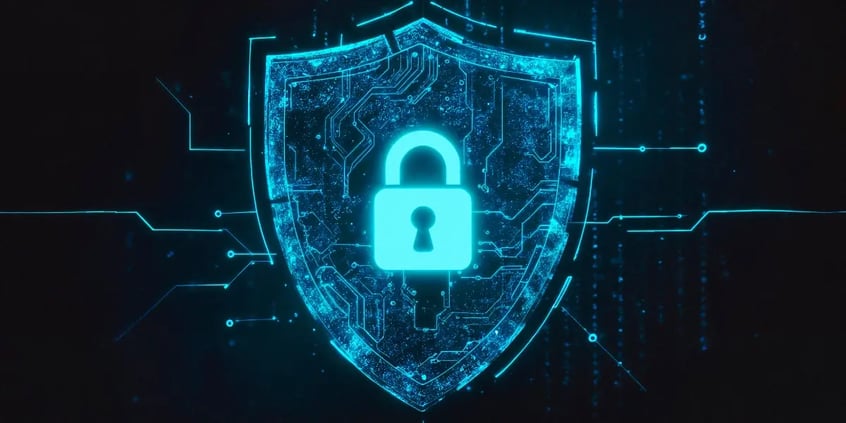
Trust has quietly become the most valuable public infrastructure of the digital era. Governments aren’t just building highways and datacenters anymore; they’re building trust ecosystems that keep national services running securely. At the core of this evolution sits Public Key Infrastructure (PKI), the cryptographic backbone powering identity, authentication, and secure digital interactions at national scale.
From national identity programs to smart city deployments, PKI cybersecurity is emerging as the invisible layer that lets citizens, agencies, and businesses interact safely in an increasingly borderless, connected world.
So, why are governments from the UAE to India and across Africa betting their digital future on PKI? Here’s the shift in motion.
The Crisis of Digital Trust in Governance
Over the last decade, governments have been hit hard by the growing gap between digital adoption and cybersecurity maturity.
Ransomware crippling public hospitals, identity theft in citizen service portals, manipulated election data, cross-border cyber espionage—these aren’t theoretical risks anymore. Citizens want governance that is fast, paperless, and efficient, but without strong cryptographic assurance even the most modern e-government system becomes a liability.
This is where PKI cybersecurity delivers a foundational upgrade. It gives governments the ability to verify identities, encrypt communications, and ensure non-repudiation in every digital transaction. Without it, digital governance is basically running on hope.
What Is PKI in Cyber Security and Why It Matters to Governments
Public Key Infrastructure (PKI) combines technologies, policies, and processes to manage digital certificates and encryption keys. It’s how digital trust is established and continuously validated.
So what is PKI in cyber security when applied to governance?
It’s the trust framework that powers citizen e-signatures, secure officer authentication, digital document integrity, inter-agency communication, and cross-border digital transactions.
In the simplest possible equation:
PKI = verified identity + encrypted communication + trusted transaction
When deployed at a national scale, PKI cybersecurity hardcodes authenticity, confidentiality, and integrity into public digital infrastructure. It transforms governance from paper-based trust to mathematically guaranteed trust.
The Global Shift: From Manual Trust to Machine Trust
Traditional governance relied on wet signatures, seals, and in-person verification. That model simply can’t keep up with cloud-native systems, mobile-first citizen services, or cross-border digital workflows.
Governments now need machine-verifiable trust.
With PKI cybersecurity, they’re securing:
-
Digital IDs and ePassports for global authentication.
-
eSign and eStamp platforms for paperless governance.
-
Secure email and document exchange within ministries and public institutions.
-
IoT-driven infrastructure like public transport, energy grids, smart sensors, and municipal systems.
Every signature, data packet, or document can now be cryptographically verified, making PKI the non-negotiable foundation of digital governance.
PKI Cybersecurity: Powering Digital Sovereignty and Compliance
As nations push for data sovereignty, PKI becomes a strategic asset.
Government-backed certificate authorities, sovereign trust anchors, and in-country root certificates allow governments to retain full jurisdictional control over digital identities, encryption, and authentication.
This is crucial for meeting compliance obligations under laws like the UAE’s Federal Decree-Law No. 45 of 2021 and India’s DPDP Act 2023.
With PKI, digital trust becomes homegrown, independently auditable, and fully aligned with national security priorities.
Building Public Trust Through Verified Identity
Digital transformation collapses without reliable identity verification. Citizens need confidence that the digital portals they’re interacting with are real, secure, and tamper-proof.
PKI-backed identity verification enables:
-
Certificate-based logins
-
Strong authentication far beyond passwords and OTPs
-
Reduced phishing and impersonation
-
A seamless, secure citizen experience
When identity is verifiable and tamper-proof, trust in the state’s digital services grows naturally.
eMudhra: Enabling the Next Era of Government Trust
This is where the transformation truly connects back to eMudhra.
As a global leader in digital trust services, eMudhra has been supporting governments across Asia, the Middle East, Africa, and emerging digital economies in establishing national PKI ecosystems aligned with global standards.
Through deep PKI cybersecurity expertise, eMudhra enables:
-
National-level certificate authority establishment with full compliance alignment
-
Cross-border trust interoperability to support trade, travel, and data exchange
-
eSign and PKI-backed digital identity frameworks for citizens, employees, and devices
-
Certificate lifecycle management at national scale for individuals, enterprises, and IoT systems
With platforms built on international standards and strong cryptographic assurance, eMudhra helps governments accelerate secure digitization, minimize cyber risks, and reinforce citizen confidence in public digital services.
eMudhra isn’t just offering PKI; it’s shaping the trust architecture that modern governments depend on.
The Road Ahead: PKI as the Trust Currency of Digital Nations
The next chapter of e-governance won’t be driven by policy documents—it will be driven by cryptography.
AI systems, IoT-connected infrastructure, cross-border digital trade, and cloud-native government services all demand a trust framework that can scale globally. PKI cybersecurity is becoming that universal trust currency.
By embedding PKI into national infrastructure, governments aren’t just protecting systems. They’re redefining digital sovereignty, defending against deepfakes and disinformation, and ensuring public confidence in an era where cyber threats evolve faster than legislation.
In the end, digital transformation is only as strong as the trust behind it, and PKI is the mathematics that turns trust into reality.
